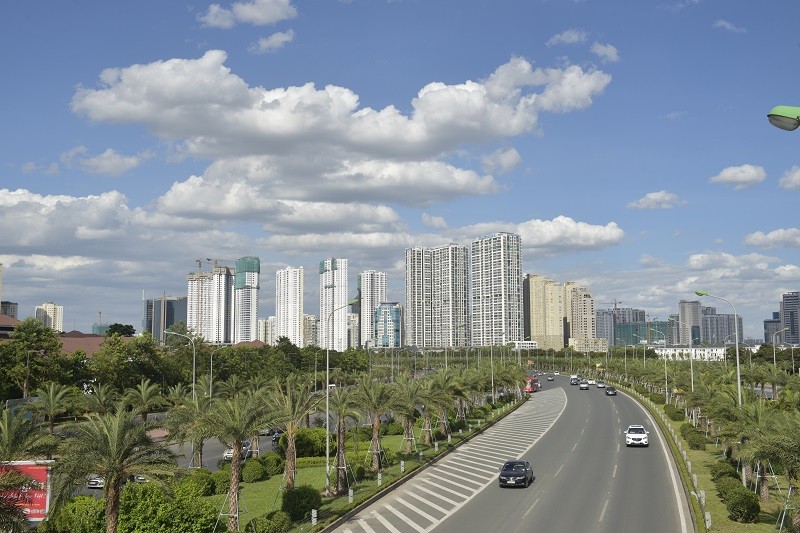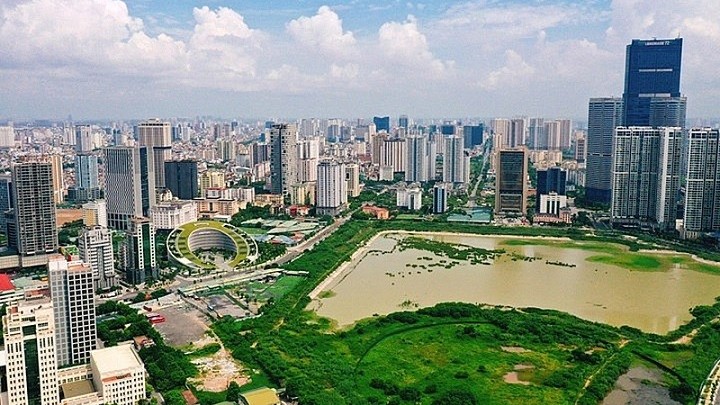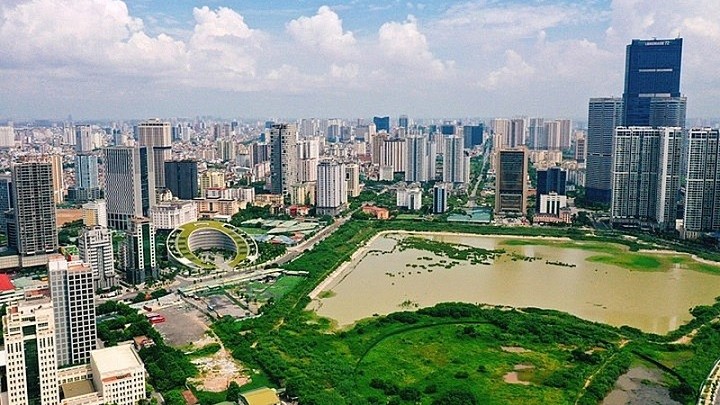
Five key trends in Viet Nam's property market in 2021
Latest
 |
| "City in the city" trend gains popularity in Viet Nam. (Photo: Pham Hung) |
Real estate remains the center for many of the biggest shifts in the course that the COVID-19 pandemic hardly left any business or industry untouched.
However, Viet Nam’s successful control of Covid-19 will secure the real estate sector to make it a promising market as the offices and warehouses facilitate the boom in online shopping, hotels and malls in the recovery process.
These segments have become a cornerstone of business conversations well beyond commercial real estate circles, argued JLL, a global real estate services firm specializing in commercial property and investment management.
JLL attributed the sentiment to sustainability initiatives, low-interest rates, and rising demand for commercial real estate. Accordingly, the company named major trends that have either stayed the course or evolved to match current needs.
City in the city
“City in the city” is a residential concept commonly used to refer to large-scale integrated developments.
This urban form has grown in popularity recently as developers seek to attract buyers with holistic, well-planned communities within a city for those who wish to avoid the chaos created by rapid urbanization and lagging infrastructure in shared facilities.
Nowadays developers taking part in city planning have to carefully understand the fundamentals of city planning in order to create sustainable value for their large-scale projects.
The beauty of any large-scale development is the ability to offer a diverse range of housing types to various groups of potential buyers. While each building should be custom designed for a specific group, the overall living environment should still be in harmony.
For example, in Phu My Hung NUA, developers planned for smaller apartments targeted towards single ex-pats and young tenants, to be situated in the urban heart of the development. Meanwhile, family-oriented buyers who purchased larger units were allotted buildings in the quieter area of the development.
Work from home and the future of workplace
A year of mass lockdowns that forced people to work from home showed many roles can be done remotely, spurring companies to adopt new, hybrid working models. The shift was already underway at many businesses, but like so many things, it accelerated due to Covid-19.
“In 2020 a work from home experiment took place globally and showed that leveraging technology, businesses can continue to operate effectively,” says Paul Fisher, Country Head at JLL Viet Nam.
He added, “but for many, the lack of face to face interaction has put pressure on teams and whilst a number of our clients expect to adopt flexible working practices in the future, for the majority, this will include the office remaining the central point for business activities”.
At the end of the day, many aspects of work won’t change. People will still need to collaborate, innovate, and liaise with managers on projects and their careers. These are some of the reasons why people missed the office, and it’s why for many, offices will retain a central role in corporate life.
The office still exists as the best and most convenient place for team building and connecting with management, JLL emphasized.
E-commerce-driven logistics sector
E-commerce accelerated massively in 2020 as shoppers stuck at home flocked online. A recent JLL report pointed out that e-commerce is a positive tailwind for consumption-driven demand for logistics real estate.
Viet Nam is currently one of the fastest growing e-commerce markets in Southeast Asia.
Thus, in recent years, the supply chain has become increasingly consumer-driven. The delivery speed was already a major factor in the buying decision, with major online retailers offering same-day delivery options. Surges in online groceries orders among other essentials have pushed businesses to look for more cold storage space with proximity to their customers.
Compared to traditional logistics operations, e-commerce is more labor-intensive, and requires three times more warehouse space. That’s part of the reason behind increased investor demand for industrial real estate across the world.
Corporates are striving for sustainability
When money gets tight, initiatives supporting the environment can be among the first to get sidelined. But despite difficult times ahead, companies and investors are expected to stay the course.
According to JLL, in real estate, assets with high environmental, social and corporate governance (ESG) ratings can attain a 33% rental premium over comparable non-green certified buildings. The real estate sector must play a critical role in creating a decarbonized environment, helping society prepare, respond, re-enter and ultimately re-imagine a sustainable future.
Investors are setting their eyes on health and life science real estate
How investors refocus during an economic downturn is always closely watched.
In 2021, there has been an increased interest in sectors that are important during the health crisis. Logistics assets, already one of the hottest sectors in recent years, are set to receive increased allocations amid the boom in online shopping. Data centers, multifamily and life sciences real estate are also increasingly in investors’ crosshairs.
Both domestic and international investors have long been interested in this sector, and they are in need of more cold storage locations closer to customers to serve the growing demand for heat-sensitive products such as cosmetics, food and pharmaceuticals.
Special health care products like COVID-19 vaccines and other vaccines might become the special driving forces behind the cold supply chain and life science real estate in the future, JLL noted.

























